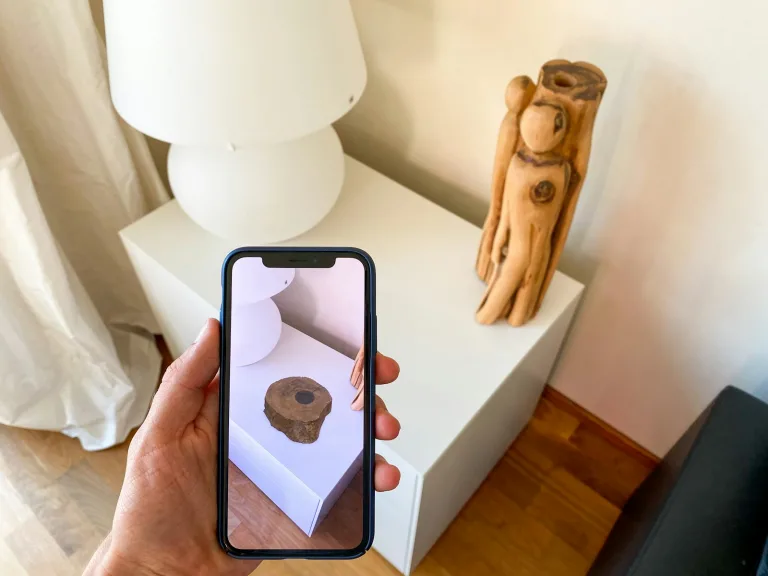The Role of Social Media in Digital Marketing
Hey there!
Today, I want to chat about something that’s pretty close to my heart—and probably yours, too, if you’re anything like me: social media. We all spend a chunk of our day scrolling through Instagram, Facebook, Twitter, and maybe even TikTok. But have you ever stopped to think about how these platforms are changing the game for businesses in the digital marketing space? Well, that’s exactly what we’re diving into today.
Social media has evolved from being a place where we post pictures of our lunch (guilty as charged) to a powerful tool that businesses can’t afford to ignore. It’s kind of mind-blowing when you think about it. I mean, just a decade ago, social media was still in its toddler phase, and now it’s the big kid on the block, bossing around the entire digital marketing neighborhood.
Why Social Media Matters in Digital Marketing
First things first, why does social media even matter when it comes to digital marketing? The short answer: visibility and engagement.
Social media platforms are where people hang out online. Whether they’re sharing memes, catching up with friends, or stalking their favorite celebrities, your potential customers are likely spending a good chunk of their time on these platforms. As a business, you want to be where your customers are, right? That’s why social media is so important.
When I started out with my first blog, I thought the key to success was just cranking out great content and waiting for people to find me. Boy, was I wrong! It wasn’t until I started actively sharing my posts on social media and engaging with my followers that I began to see real traffic coming to my site. I’m talking about a 200% increase in visitors, and that’s not an exaggeration. Social media amplifies your reach like nothing else.
The Power of Social Media for Brand Awareness
Let’s talk brand awareness. If you’re not familiar with the term, it basically means how well people recognize your brand. Think about it—when someone mentions “Nike,” you immediately picture that iconic swoosh and “Just Do It.” That’s brand awareness at work.
Social media is a goldmine for building brand awareness. It gives you a platform to show off your brand’s personality, share your story, and connect with your audience in a way that feels personal and authentic. And the best part? You can do all of this without spending a fortune.
When I was working with a small startup last year, we had a pretty tight budget for marketing. We couldn’t afford big TV ads or fancy billboards, so we turned to social media. By creating engaging content, running a few targeted ads, and consistently interacting with our audience, we managed to build a strong brand presence. Within six months, we went from being virtually unknown to having a loyal following of over 10,000 people. That’s the power of social media!
Driving Traffic to Your Website
Another huge benefit of social media is its ability to drive traffic to your website. Every time you share a blog post, a new product, or even a behind-the-scenes look at your business, you’re creating an opportunity to funnel people back to your site.
I remember this one time I wrote a blog post that I was really proud of. It was all about digital detoxing and why it’s so important in our screen-obsessed world. I shared it on all my social media platforms, but it didn’t get much traction at first. Then, I decided to run a small paid campaign on Facebook targeting people who were interested in wellness and mindfulness. Within a week, the post had gone viral (well, viral by my standards), and my website traffic skyrocketed. Not only did I see an increase in page views, but I also gained a bunch of new subscribers to my newsletter.
The lesson here? Don’t underestimate the power of social media to bring people to your virtual doorstep.
Building Relationships with Your Audience
One of the things I love most about social media is how it allows you to build real relationships with your audience. Unlike traditional marketing channels where communication is pretty much one-way, social media lets you have a two-way conversation with your customers.
Let me share a quick story. A few months ago, I was following this brand on Instagram that makes eco-friendly skincare products. I commented on one of their posts, asking about the ingredients in their new moisturizer because I have super sensitive skin. To my surprise, they responded within an hour with a detailed explanation, plus some tips on how to use the product for best results. That little interaction made me feel valued as a customer, and guess what? I ended up buying the moisturizer and became a loyal customer.
This is the kind of relationship-building that can turn casual followers into raving fans. When people feel like they’re being heard and appreciated, they’re much more likely to stick around and support your brand.
Social Media and Customer Feedback
Speaking of building relationships, social media is also a fantastic tool for gathering customer feedback. Whether it’s through comments, direct messages, or even polls and surveys, you can get real-time insights into what your audience likes, dislikes, and wants more of.
I can’t tell you how many times I’ve tweaked my content strategy based on feedback I’ve received on social media. There was a period where I was posting a lot about SEO tips and tricks, but I noticed that those posts weren’t getting as much engagement as my posts about social media marketing. So, I asked my followers directly: “What do you want to see more of?” The overwhelming response was more content on social media strategies. I adjusted my focus, and not only did my engagement rates improve, but I also saw an increase in my follower count.
It just goes to show how powerful social media can be for listening to your audience and giving them exactly what they’re looking for.
Social Media Advertising: A Game Changer
Now, let’s dive into the nitty-gritty of social media advertising. If you’ve ever boosted a post on Facebook or run an Instagram ad, you know what I’m talking about. Social media ads are a game changer because they allow you to target specific demographics with laser precision.
I’ve had my fair share of experiments with social media ads, some successful and some…not so much. One campaign that stands out was when I was helping a friend promote her online yoga classes. We decided to run a series of ads on Facebook targeting women aged 25-45 who were interested in fitness and wellness. We also included a special offer for first-time sign-ups to sweeten the deal.
The results were amazing. We saw a 50% increase in sign-ups within the first two weeks of the campaign. What’s even better is that we were able to track the effectiveness of each ad in real-time and make adjustments on the fly. For example, we noticed that the ad with a video of a live class performed better than the static image, so we shifted more of our budget toward video content.
The Importance of Analytics in Social Media Marketing
One thing you can’t ignore when it comes to social media marketing is analytics. Tracking your performance is key to understanding what’s working and what’s not. Most social media platforms offer built-in analytics tools that give you insights into things like engagement rates, follower growth, and the performance of your posts and ads.
I’ll admit, I used to find analytics a bit intimidating. All those graphs and numbers can be overwhelming if you’re not a data geek. But once I started paying attention to the data, I realized how valuable it is. For instance, I noticed that my posts tended to get more engagement when I used hashtags related to specific trends or events. So, I started incorporating more trending hashtags into my posts, and lo and behold, my engagement rates shot up.
Analytics also helped me figure out the best times to post on social media. After experimenting with different posting schedules, I found that my audience was most active in the evenings. Armed with this knowledge, I adjusted my posting times, which led to even better engagement.
Influencer Marketing: Leveraging Social Media’s Star Power
Let’s talk about influencer marketing. You know, those collaborations between brands and social media personalities with huge followings? It’s one of the most effective strategies in digital marketing today.
I had the opportunity to work on an influencer marketing campaign last year, and it was a real eye-opener. We partnered with a popular lifestyle blogger who had a massive following on Instagram. She posted a few photos and stories using our product, and the response was incredible. Not only did we see a spike in sales, but our brand’s Instagram following also grew by 30% in just a few days.
The key to successful influencer marketing is finding the right influencer for your brand. You want someone whose audience aligns with your target market and who genuinely believes in your product. When done right, influencer marketing can be a powerful way to reach a larger audience and build credibility for your brand.
Staying Authentic in the Age of Social Media
With all the benefits of social media marketing, it’s easy to get caught up in trying to do everything perfectly. But here’s the thing: authenticity matters more than perfection.
People can spot a fake from a mile away, and nothing turns off an audience faster than a brand that feels inauthentic. Whether you’re a small business or a big corporation, staying true to your brand values and being genuine in your interactions is crucial.
I’ve learned this lesson firsthand. Early on, I tried to mimic what I saw other successful bloggers doing—posting perfectly curated photos, using overly polished language, and sticking to “safe” topics. But it felt forced, and my audience could tell. It wasn’t until I started showing more of my true self—sharing my real thoughts, posting unfiltered photos, and even admitting when I made mistakes—that I began to build a stronger connection with my followers.
Authenticity builds trust, and trust is the foundation of any successful marketing strategy.
Conclusion: Embracing the Power of Social Media in Digital Marketing
So, where does this leave us? Social media is no longer just an option in digital marketing—it’s a necessity. Whether you’re building brand awareness, driving traffic, engaging with your audience, or running ads, social media offers endless opportunities to grow your business.
But remember, it’s not just about the tools and strategies. It’s about how you use them to connect with your audience in a meaningful way. Keep it real, stay engaged, and don’t be afraid to experiment. Social media is constantly evolving, and there’s always something new to learn.
So, get out there and start making the most of what social media has to offer. Your business will thank you for it.
And hey, if you’ve got any social media success stories (or even failures—those are important too!), I’d love to hear them. Drop a comment below or hit me up on Twitter. Let’s keep the conversation going!






